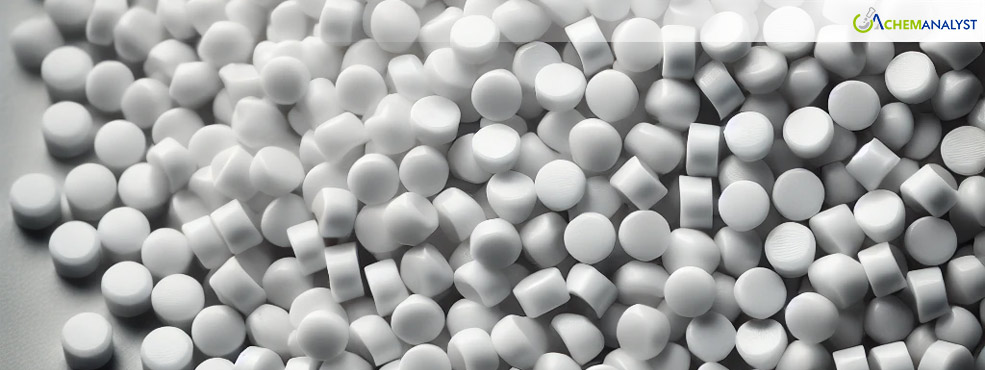Welcome To ChemAnalyst

The global Polybutylene Terephthalate (PBT) market exhibited varied price trends across key regions during the second half of November 2024. While the U.S. experienced initial price stability followed by a softening trend, Germany's market saw brief gains before stabilizing amid demand constraints. In China, prices remained steady before a marginal decline, influenced by feedstock cost reductions and inventory pressures.
In the U.S., PBT prices saw early stability due to strong demand and strategic stockpiling, as manufacturers prepared for anticipated tariff changes under the new administration. Improved economic indicators, such as rising consumer confidence and declining auto loan rates, bolstered the automotive sector's demand for PBT. However, as the month progressed, falling feedstock Purified Terephthalic Acid (PTA) prices weighed on PBT costs, leading to a price dip by the month's close. While container imports from Asia surged to record highs, providing a short-term boost to activity, logistical overcapacity on the West Coast kept freight rates subdued. Looking forward, freight rate hikes planned for December and additional stockpiling ahead of the Chinese New Year could exert upward price pressure.
In Germany, PBT prices initially benefited from rising feedstock costs, particularly PTA, which maintained an upward trajectory. However, the market faced growing headwinds as the automotive sector struggled with subdued demand, especially for electric vehicles (EVs). These challenges were compounded by global competition, driven by aggressive state-backed subsidy programs in the U.S. and China, which have eroded the competitiveness of European manufacturers. High production costs and waning market share have forced carmakers to scale back operations, further suppressing demand. Ford's announcement of workforce reductions highlighted the broader structural issues facing the European automotive industry, ultimately contributing to price stabilization in the PBT market.
In China, PBT prices remained stable initially but declined slightly towards the end of the month. The downward trend was influenced by reduced PTA feedstock costs and increased inventory levels resulting from undelivered orders and high operating rates. The automotive and electrical industries showed limited procurement activity, reflecting cautious market sentiment. Freight conditions remained relatively smooth despite minor port delays, but rising freight rates ahead of the Chinese New Year began to tighten capacity, particularly on Asia-Europe routes. Blank sailings by carriers exacerbated the supply-demand imbalance, creating logistical uncertainties.
Looking forward, PBT prices are expected to face divergent pressures across regions. In the U.S., demand for stockpiling and the potential impact of higher freight rates may lend support to prices. Meanwhile, Germany's automotive sector challenges are likely to persist, keeping PBT demand subdued. In China, rising freight rates tied to holiday-driven demand may stabilize prices temporarily, but the long-term outlook hinges on effective inventory management and the pace of downstream sector recovery.
We use cookies to deliver the best possible experience on our website. To learn more, visit our Privacy Policy. By continuing to use this site or by closing this box, you consent to our use of cookies. More info.
